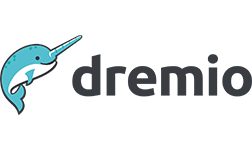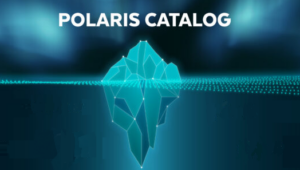

Dremio today announced that the metadata catalog at the heart of its Apache Iceberg-based data lakehouse now supports other popular metadata catalog services, including Snowflake’s Apache Polaris-based catalog and Databricks Unity Catalog. The lakehouse provider says the move in its Project Nessie-based metadata catalog will bolster architectural flexibility in the cloud, on-prem, and everywhere in between.
Before metadata catalogs suddenly jumped into the big data consciousness earlier this year, Dremio had been quietly backing its own metadata catalog, dubbed Project Nessie, to provide the necessary housekeeping that a lakehouse based on Apache Iceberg tables requires.
So when Snowflake announced the open source Polaris metadata catalog during its user conference in early June, Dremio executives applauded the announcement and the openness that it could foster in the big data community. Seeing close alignment between Polaris and Nessie, which began development in 2020, Dremio executives pledged to work with the Polaris community to merge the two projects.
The Nessie-Polaris merger has yet to happen, but it is still in the plans. “Our goal is to merge the capabilities of Project Nessie into Apache Polaris (Incubating) to create a single, unified catalog,” says James Rowland-Jones, vice president of product at Dremio. “We believe this will become the default catalog for the open-source community. Dremio will continue to focus on seamless enterprise services built around it.”
In the meantime, Dremio is moving forward with development its own catalog service for technical metadata, dubbed the Dremio Enterprise Data Catalog. Specifically, Dremio today announced several new capabilities in the metadata catalog, which is based on Nessie.
The new bits include integration with the Snowflake metadata catalog service based on Apache Polaris as well as hooking into Unity Catalog, the metadata catalog that Databricks built for managing data stored in Delta Lake tables (Unity Catalog does quite a bit more, including lineage tracking, semantic modeling, security, governance, and functions as a regular, user-focused data catalog, but that’s another story).
Dremio’s move is noteworthy for a couple of reasons. For starters, with its acquisition of Iceberg maker Tabular for between $1 billion and $2 billion and its commitments to essentially merge the Delta Lake and Iceberg specs, Databricks helped to ease CFOs who were worried that they would pick the “wrong” format.
However, while Databricks committed earlier this year to supporting Iceberg tables with a future release of Unity Catalog, that support is not available yet. Dremio’s support for Unity Catalog ensures that Databricks customers who use its metadata catalog can achieve that interoperability with Polaris today.
“Flexibility is essential for modern organizations looking to maximize the value of their data,” said Tomer Shiran, Founder of Dremio. “With expanded Iceberg catalog support across all environments, Dremio empowers businesses to deploy their lakehouse architecture wherever it’s most effective. We’re 100% committed to giving customers the freedom to choose the best tools and infrastructure while reducing fears of vendor lock-in.”
Dremio’s product, which is officially called the Dremio Enterprise Data Catalog for Apache Iceberg, supports all Iceberg engines through the Iceberg REST API. In addition to supporting Dremio’s own SQL query engine, it supports other Iceberg-compatible query engines, including Apache Spark, Flink, and others.
Dremio’s catalog automates many of the housekeeping tasks that are required to keep an Iceber-based data lakehouse running at peak efficiency. That includes things like table optimization routines, such as compaction and garbage collection. It also provides “Git”-like branching and version control, enabling users to access data as it existed at particular moments in time (so-called “time travelling”). The catalog also provides centralized data governance and role-based access control (RBAC), ensuring fine-grained access to data and preventing user access to of sensitive data.
Kevin Petrie, vice president of research at BARC, says Dremio’s move helps enterprises deal with the “extraordinary pressure to access, prepare, and govern distributed datasets for consumption by analytics and AI applications.”
“To meet this demand, they need to catalog diverse data and metadata across data centers, regions, and clouds,” Petrie said in Dremio’s press release. “Dremio is taking a logical step to enable this with an open catalog that is based on Apache Iceberg, the emerging standard for flexible table formats, and by integrating with an ecosystem of popular platforms.”
Related Items:
Polaris Catalog, To Be Merged With Nessie, Now Available on GitHub
What the Big Fuss Over Table Formats and Metadata Catalogs Is All About
March 27, 2025
- Prophecy Introduces Fully Governed Self-Service Data Preparation for Databricks SQL
- Verdantis Launches Next-Gen AI Solutions to Transform Enterprise Master Data Management
March 26, 2025
- Quest Adds GenAI to Toad to Bridge the Skills Gap in Modern Database Management
- SymphonyAI Expands Industrial AI to the Edge with Microsoft Azure IoT Operations
- New Relic Report Reveals Media and Entertainment Sector Looks to Observability to Drive Adoption of AI
- Databricks and Anthropic Sign Deal to Bring Claude Models to Data Intelligence Platform
- Red Hat Boosts Enterprise AI Across the Hybrid Cloud with Red Hat AI
March 25, 2025
- Cognizant Advances Industry AI with NVIDIA-Powered Agents, Digital Twins, and LLMs
- Grafana Labs Unveils 2025 Observability Survey Findings and Open Source Updates at KubeCon Europe
- Algolia Boosts Browse with AI-Powered Collections
- AWS Expands Amazon Q in QuickSight with New AI Scenarios Capability
- Komprise Automates Complex Unstructured Data Migrations
- PEAK:AIO Chosen by Scan to Support Next-Gen GPUaaS Platform
- Snowflake Ventures Deepens Investment in DataOps.live to Advance Data Engineering Automation
- KX Emerges as Standalone Software Company to Make Temporal AI a Commercial Reality
- PAC Storage Unveils 5000 Series Data Storage Solutions
March 24, 2025
- PayPal Feeds the DL Beast with Huge Vault of Fraud Data
- OpenTelemetry Is Too Complicated, VictoriaMetrics Says
- Accelerating Agentic AI Productivity with Enterprise Frameworks
- When Will Large Vision Models Have Their ChatGPT Moment?
- The Future of AI Agents is Event-Driven
- Your Next Big Job in Tech: AI Engineer
- Data Warehousing for the (AI) Win
- Nvidia Touts Next Generation GPU Superchip and New Photonic Switches
- Alation Aims to Automate Data Management Drudgery with AI
- Can You Afford to Run Agentic AI in the Cloud?
- More Features…
- Clickhouse Acquires HyperDX To Advance Open-Source Observability
- IBM to Buy DataStax for Database, GenAI Capabilities
- NVIDIA GTC 2025: What to Expect From the Ultimate AI Event?
- EDB Says It Tops Oracle, Other Databases in Benchmarks
- Google Launches Data Science Agent for Colab
- Excessive Cloud Spending In the Spotlight
- Databricks Unveils LakeFlow: A Unified and Intelligent Tool for Data Engineering
- Big Data Heads to the Moon
- Weaviate Introduces New Agents to Simplify Complex Data Workflows
- Mathematica Helps Crack Zodiac Killer’s Code
- More News In Brief…
- Gartner Predicts 40% of Generative AI Solutions Will Be Multimodal By 2027
- Snowflake Ventures Invests in Anomalo for Advanced Data Quality Monitoring in the AI Data Cloud
- NVIDIA Unveils AI Data Platform for Accelerated AI Query Workloads in Enterprise Storage
- Accenture Invests in OPAQUE to Advance Confidential AI and Data Solutions
- Qlik Study: 94% of Businesses Boost AI Investment, But Only 21% Have Fully Operationalized It
- Seagate Unveils IronWolf Pro 24TB Hard Drive for SMBs and Enterprises
- Gartner Identifies Top Trends in Data and Analytics for 2025
- Qlik Survey Finds AI at Risk as Poor Data Quality Undermines Investments
- Palantir and Databricks Announce Strategic Product Partnership to Deliver Secure and Efficient AI to Customers
- Cribl Unveils Lakehouse for Scalable, Schema-Free Telemetry Data Management
- More This Just In…



























